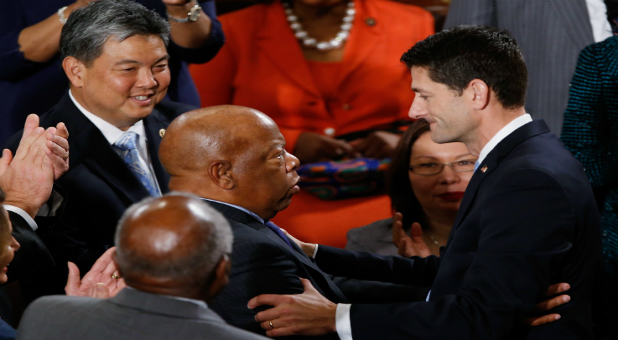With Ryan as Speaker, GOP Tax Code Overhaul May Advance
Republican presidential candidates who promise to cut and simplify U.S. taxes would find a powerful ally if they reach the White House: House of Representatives Speaker Paul Ryan.
The newly elected speaker is a long-time champion of thoroughly overhauling the tax code, a politically difficult project that has eluded Washington since 1986.
“How reassuring it would be if we actually fixed the tax code,” said Ryan, who ran for vice president in 2012, in his acceptance speech after being elected speaker on Thursday.
In his former roles heading budget and tax committees, Ryan built Republican support for dramatic changes in how the nation raises and spends money, perhaps encouraging presidential candidates to think big too, conservative tax experts said.
“The level of consensus is very strong,” said Grover Norquist, president of Americans for Tax Reform, a conservative group that advocates for lower taxes and smaller government.
Although their tax rhetoric is often short on details, the Republican Party’s numerous presidential contenders agree on two things: taxes are too high and too complicated.
Former Florida Governor Jeb Bush and real-estate mogul Donald Trump would consolidate the existing seven income-tax brackets to three and raise deductions for low-income filers.
Florida Senator Marco Rubio would create two tax brackets and introduce a new child tax credit, while Texas Senator Ted Cruz favors a flat tax of 10 percent.
Former business executive Carly Fiorina would cut the tax code to three pages. Retired neurosurgeon Ben Carson calls for a flat tax based on biblical principles.
Any tax overhaul, especially the radical approach that some candidates favor, would face huge obstacles. Most would cause sharp declines in government revenues, which could mean slashing popular health and retirement programs.
Bush’s and Cruz’s tax plans would collect $3.7 trillion less over 10 years, while Rubio’s plan would reduce revenues by $6 trillion and Trump’s would result in a whopping $12 trillion drop, according to the Tax Foundation, a free-market think tank.
Efforts to close loopholes likely would meet a buzz-saw of opposition. Homeowners, for example, would fight any effort to reduce the home mortgage interest deduction, a tax subsidy that costs the U.S. Treasury $70 billion a year in lost revenue.
“These plans are aspirational,” said James Pethokoukis, a fellow with the conservative American Enterprise Institute. “The fact that you have these huge, popular tax breaks really limits what you can do.”
Ryan’s predecessor as House speaker, John Boehner, showed little interest in tackling a tax code overhaul. “Blah, blah, blah, blah,” he said in 2014 when asked about one plan, which gained little traction.
Ryan, by contrast, had planned to overhaul taxes as chairman of the Ways and Means Committee before he reluctantly agreed to take Boehner’s job.
With a Republican in the White House, “it is quite likely in the first two years you see an attempt to do a dramatic overhaul of the tax code,” said Rohit Kumar, a former top Republican Senate aide who is now with PwC.
Even if Republicans win control of the White House and both chambers of Congress, they probably would not have big enough majorities to move legislation without Democratic support.
“At the end of the day, I think they’d step back from the precipice and just tinker around with the current system,” said Steven Rosenthal, a senior fellow at the Urban Institute’s Tax Policy Center.
“But you never know. We are living in strange times,” he said. {eoa}
(Reporting by Andy Sullivan; Editing by Kevin Drawbaugh and Dan Grebler)
© 2015 Thomson Reuters. All Rights Reserved.














































